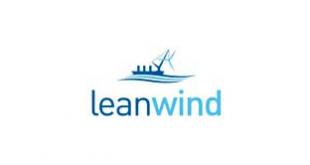Introduction
The offshore wind industry in existing near-shore shallow sites has yet to become cost competitive with traditional forms of energy, while new sites are being planned for greater distances from shore or deeper water, bringing new challenges.
The offshore wind industry has not yet applied lean principles to the logistical operations of the wind farm in all stages of the lifecycle as proposed by the LEANWIND project. "Lean" principles were originally developed by Toyota to optimize the processes of manufacturing industries; these principles of optimization and efficiency have subsequently been adopted by many other industries to remove wasteful stages and streamline processes.
This new "lean" paradigm will be applied to each of the critical project stages: logistical processes, shore-based transport links, port and staging facilities, vessels, lifting equipment, safety and O&M.
Lean principles
The LEANWIND approach will ensure that unnecessarily complex or wasteful stages of the development process are removed, flow between the required stages is streamlined, quality is enhanced and thus overall cost and time efficiency improved to enable the industry to bridge the gap between current costs and industry cost aspirations. Properly applied, lean management will improve quality, reliability and H&S standards across the project supply chain and throughout the wind farm lifecycle.
Project specifics
LEANWIND is broken down into 10 different work packages: they range from technical management, novel vessels equipment, to integrated logistics and economic and market assessment, among others. The contribution of the University of Edinburgh will be in three main areas - metocean analysis for consideration of site accessibility, mapping the supply chain using GIS tools, and life-cycle analysis.



